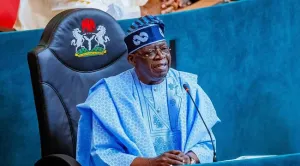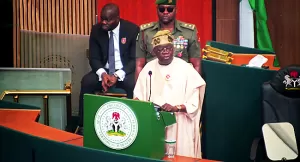FRSC Backs Bicycle Use Amid Infrastructure Concerns.

The Federal Road Safety Corps (FRSC) in Nigeria has recently encouraged Nigerians to embrace the use of bicycles for daily movement. This push comes in light of rising transportation costs and traffic congestion issues across the country. Here’s a breakdown of the situation based on the latest information:
- Promotion of Bicycles: The FRSC has publicly urged citizens to consider bicycles as an alternative mode of transport. This recommendation is seen as a response to both economic pressures, where fuel and transport costs have been rising, and as a measure to alleviate traffic congestion in urban areas.
- Infrastructure Concerns: Despite the promotion, there’s an acknowledgment of infrastructure challenges. Nigeria, like many developing countries, might not have an extensive network of bicycle-friendly paths or lanes. This lack of infrastructure poses safety concerns for cyclists who might have to share roads primarily designed for vehicular traffic.
- Public and Social Media Reaction: From the X posts, there’s a mix of reactions. Some users see it as a practical solution, suggesting a need for adaptation (“Simply put learn to adjust.”). Others find humor or skepticism in the suggestion under current conditions (“E CHOKE.. 🤣”). There’s a general curiosity about the feasibility of this shift given Nigeria’s current infrastructure and cultural context around transportation.
- Broader Context: The FRSC’s initiative aligns with global trends towards sustainable transport solutions. However, the effectiveness of promoting bicycle use without adequate infrastructure remains a point of discussion. Historically, the perception of bicycles in many places, including parts of Nigeria, has been as a mode of transport for those who cannot afford better options, rather than a choice for its environmental or health benefits.
- FRSC’s Role and Strategy: The FRSC’s advocacy for bicycles might also be part of a broader strategy to reduce road accidents by encouraging less dependency on motor vehicles, which could inherently reduce congestion and the complexity of traffic management. However, this strategy would ideally be accompanied by measures to improve cycling infrastructure, public safety campaigns, and possibly incentives or subsidies for bicycle purchases or infrastructure development.
Given these points, while the FRSC’s support for bicycle use is clear, the implementation and acceptance of this mode of transport will heavily depend on how infrastructure issues are addressed, alongside cultural shifts in how transportation is viewed in Nigerian society. The push for bicycles reflects a broader global trend towards sustainability, but local adaptation, particularly in infrastructure development, remains crucial for its success.







